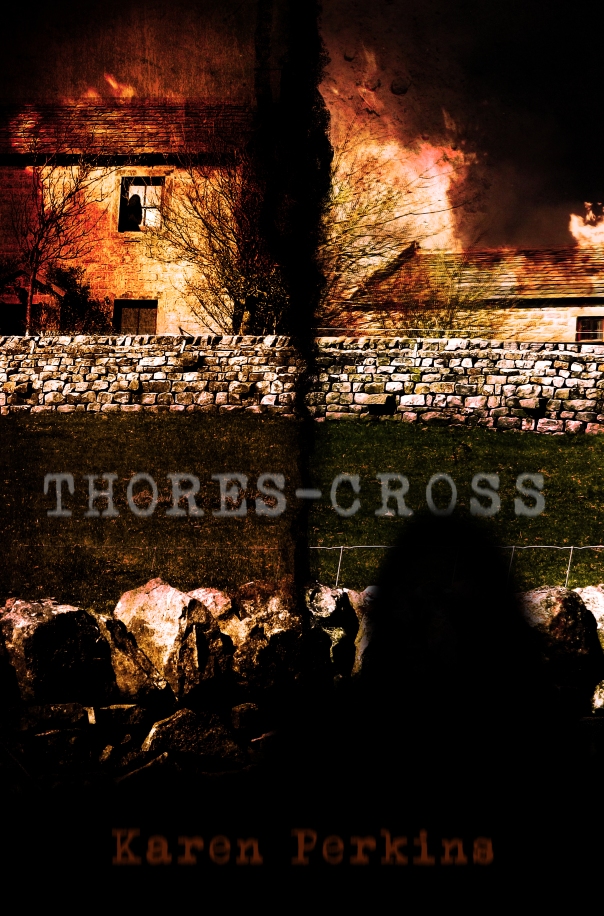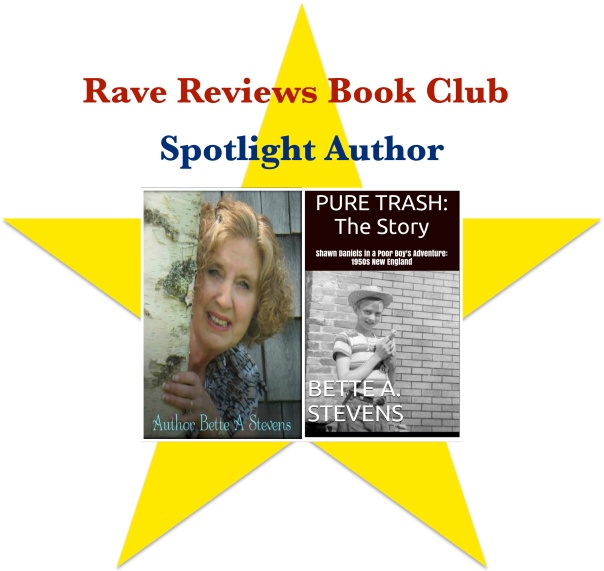
A haunting novel set in the North Yorkshire Moors about isolation, superstition and persecution. Thores-Cross follows the stories of Emma, a present day writer, and Jennet, an eighteenth century witch.
Emma Moorcroft is still grieving after a late miscarriage and moves to her dream house at Thruscross Reservoir with her husband, Dave. Both Emma and Dave hope that moving into their new home signifies a fresh start, but life is not that simple. Emma has nightmares about the reservoir and the drowned village that lies beneath the water, and is further disturbed by the sound of church bells – from a church that no longer exists.
Jennet is fifteen and lives in the isolated community of Thores-Cross, where life revolves about the sheep on which they depend. Following the sudden loss of both her parents, she is seduced by the local wool merchant, Richard Ramsgill. She becomes pregnant and is shunned not only by Ramsgill, but by the entire village. Lonely and embittered, Jennet’s problems escalate, leading to tragic consequences which continue to have an effect through the centuries.
Emma becomes fixated on Jennet, neglecting herself, her beloved dogs and her husband to the point where her marriage may not survive. As Jennet and Emma’s lives become further entwined, Emma’s obsession deepens and she realises that the curse Jennet inflicted on the Ramsgill family over two hundred years ago is still claiming lives. Emma is the only one who can stop Jennet killing again, but will her efforts be enough?
Thores-Cross is a number one bestseller in British Horror on Amazon
*****
Thores-Cross – Sneak Peak
Prologue
26th April 1988
‘I dare you to go up to the haunted house.’
I glared at my sister in annoyance, then up at the house. I’d been there plenty of times with Alice and my friends, but never on my own. I did not want to go on my own now.
‘Double dare you.’
‘You little—!’ I lunged at her, but she danced out of my way. She might have been small, but she was quick.
She laughed. ‘Scaredy-cat, scaredy-cat, Emma’s a scaredy-cat!’
I eyed the house again, then frowned at Alice. But a double dare was a double dare. And I was not a scaredy-cat. At ten years old, I could do this. I took a deep breath, ignored the butterflies in my stomach and started walking up the hill. I didn’t rush.
I scrambled through the gap in the crumbling dry stone wall that separated the house from the field, using both hands to steady myself. Something caught my eye and I stopped to have a closer look. Curious, I reached into the jumble of stones, and pulled it from the dark recess in the wall.
A little pot. Made of stone, it was rich brown in colour, roughly an inch high and two inches round with a small neck and lip. An old inkpot. I shook my head. How did I know that?
‘My story.’
I froze, then spun round to check behind me. Who said that? I looked back at the house. There was nobody here. Although the stone walls still stood, there were no doors, windows, nor roof. Dark holes gaped in the walls and, I knew from earlier visits, it was knee deep in sheepshit inside. I must have imagined the voice. I glanced back at Alice, braced my shoulders and took a step towards the house.
‘Write my story.’
My breath caught in my throat, then I sucked in a great lungful of air, turned and ran. Dashing past Alice, I didn’t care that she was laughing at me, that I’d lost the dare. I was terrified, desperate to get away from that house, that voice. It was only when I’d stopped running that I realised I still clutched the inkpot.
Chapter 1 – Jennet
28th June 1776
Pa moaned and moved in his sleep. I groaned. I knew by now that meant he had shat himself again. I had only changed the heather and straw he lay on an hour ago – I would have to go through the whole thing again: wake him and force him to move so I could take the stinking bedding away and give him fresh. I cursed. Mam’s body were laid out downstairs in the hall. She would be buried tomorrow, and instead of sitting over her, I were cleaning Pa’s shite.
I sighed and got up to take care of the mess. I were being unfair. The bloody flux were because of his ducking in the sheep pit. But I had seen the bloody flux before, and it did not bring such a man to this so quickly, not in three days.
I were fifteen years old, had just lost my Mam, and Pa were leaving me too. It were his grief and guilt that had reduced him to this pitiful hulk. If he wanted to stay with me – take care of me – he would fight this. I heaved him over and recoiled from the stench of blood and shite; but gritted my teeth and gathered up the dirty bedding. Yet another stinking trip to the midden.
I picked up fresh from the dwindling pile downstairs – I would have to go out and pull more heather soon. I glanced over at Mam’s body, then carried the bedding up and dumped it on the bed Pa had so recently shared with her. He rolled back over – without even a flicker of his eyes to show he were aware of what I were doing for him.
Tears dripped down my face. How could this have happened? I went back downstairs, took the pot of steaming water off the fire and poured some into the bowl of herbs. I had struggled to remember what Mam had used on Robert Grange at the Gate Inn when he had been struck down with this, and eventually recalled a tea of agrimony, peppermint and blackberry leaf, then as much crab apple, bilberry and raspberry mash as she could force down his neck.
The herbs needed to steep for a few minutes, and if he would not drink any of it, I would wash his face with the tea. At least the smell were fresh. I held my head over the bowl and breathed deeply, then carried it upstairs to Pa for him to breathe in the healing steam. He were too far gone for the mash.
Mam had taught me the cunning ways since I were old enough to walk and talk. She had showed me how to recognise the restorative plants and herbs, which ones helped fevers, which helped wounds, which helped women and childbirth – even preventing a child. I knew their names, where they grew, whether flowers, leaves or roots were best, and the best times to plant and pick them. I knew what she knew. Had known. But I were struggling to remember. My thoughts were as muddy as the sheep pit she had died in. I had racked my brains to think what to brew for Pa, and had had to take out Mam’s journal to check. Even so, my remedies did not seem to be doing much good.
I dipped a clean cloth into the tea and wiped his brow. I did not know of any plant that healed grief. I only wish I did.
How could this happen? How could they leave me?
‘Jennet?’
I started at the sound of my name being called and went downstairs to greet Mary Farmer.
‘Thee’s never alone here!’
I nodded, too worn out to respond with any enthusiasm.
‘Ee, I thought that Susan Gill would be here with thee.’
‘She were, she had to go help William with the sheep.’
‘Oh aye, likely story, she’s not a one for hard work, her. Happen the smell got to her.’
I glanced up at her, but she showed no embarrassment. I realised I had got used to all but the most pungent, and wondered how badly my home smelled.
‘Go on, get out of here. Go get some fresh air, this is no job for a lass. Thee’s done well, but let me stay with him for a bit. Go for a walk.’
I did not need telling twice. I grabbed my shawl and nodded my thanks. When I got to the door, Mary stopped me.
‘Has thee put bees in mourning yet, lass?’
I shook my head.
‘Well, do it now, if thee don’t, they’ll never do owt else for thee, thee knows that.’
I nodded and ran. I had never been so glad to get outside. The crisp June wind blew the fresh scent of heather into my face and hair, ridding me of the scent of sickness. Chickens scattering at my feet, I hurried to the beeboles in the wall bordering the garden to tell the bees of Mam’s death, ensuring plenty of honey and beeswax to come, then walked up the track on to the moor and kept going – not in the direction of the sheep-ford, but the other way, uphill where there were just space. No walls, nowt constraining me; just wind and heather. I breathed deeply, trying to forget, but very aware I were now alone in the world.
Chapter 2 – Emma
4th August 2012
‘Happy?’
I turned to my husband.
‘Ecstatic.’
He wrapped his arms around me. ‘It’s finally finished. No more problems, no more arguments with builders. The movers have gone, it’s just us and our dream home,’ he said.
‘Thank you.’
‘What for?’
‘The “our”. This is my dream home, really. I was the one who wanted to build here, despite the problems with the planning permission. You’d have been happy anywhere.’
‘It is my dream home, too, Emma. It’s beautiful up here, we’ve done the designs ourselves, made all the decisions together: it’s our home.’ He kissed me, and I held him close in my excitement. This was our fresh start. ‘Shall we go in?’
‘Don’t even think about carrying me over the threshold.’ I laughed.
‘I wouldn’t dream of it.’ He marched to the front door and left it open for me to follow him inside. I laughed again and followed him into our new home.
The downstairs was a huge open-plan living space with the front of the house mainly glass to make the most of the view. A large stone gothic fireplace on the north wall was the focal point for the three comfortable sofas.
Set out in a squat H, the kitchen-diner took up the south wing, while the centre and north wing were lounge, with a cosy reading corner in front of the most northwestern window. A wetroom/loo, utility and mudroom were hidden away in the eastern ends of the wings and a large entrance vestibule also served as the support for the staircase.
Upstairs, there was an office in the centre and four en suite bedrooms in the wings, ready for the family we didn’t yet have – would maybe never have.
I loved it and had designed it myself. Admittedly, Dave had taken my designs, changed what wasn’t possible or safe, then added some strange magic to make our dream home the showstopper it was. At times I had despaired that it would ever get built, and my encroaching on his expertise had led to the most serious fights we’d had yet, but it was worth it. Our marriage had survived and we both loved it. I hugged him and he squeezed me back. I hadn’t been this happy for a very long time.
Dave let go of me and bent to take the bottle of champagne out of the cool box. He opened it, poured, then held out a full plastic “glass” to me – the real ones were still in a box somewhere. We touched our drinks together in a toast, both of us beaming.
‘To us and our new life,’ Dave said, and we drank. He led the way further into the lounge to the large windows in the opposite wall.
‘Look at that view,’ he said. ‘We’ll have that every day for the rest of our lives, if we want it.’
I stared out of the window at the expanse of water. The reservoir was half full, lined by a rocky shore and grassy banks. Pines hugged the rise of the hill until they gave way to the purple-blooming heather of moorland. From this side of the house we could not see another building and it seemed we were alone. I watched in delight as a flock of Canada Geese landed on the water. ‘I know, we’re lucky.’
‘It’s very isolated though. I’m worried about leaving you on your own when I go up to Scotland. I need to spend a fair bit of time up there over the next few months – at this stage in the project I have to supervise things personally.’
‘I’ll be fine, you don’t need to worry. There’s so much to do to get the house straight, I’ll barely notice you’re gone.’ I waved my arm at the boxes behind us. ‘And anyway, I love the solitude; I’ll get loads of writing done, and it’s not like the old days – I have a phone and a car and everything.’ I laughed again.
‘I know all that, but still . . . This is a big house, which makes it a target, and the thought of you being on your own concerns me.’
‘I’m used to it, I lived alone for seven years before we met, and anyway, you went overboard on the security – no one will get through those windows or past all the locks.’
‘Yes, but still . . .’
‘Well then, don’t go away so much!’
‘You know I have to.’
‘Yes, you have to get away regularly because you can’t cope with me full time!’
He laughed at the old joke. ‘Now Ems, you know that’s not always true.’
‘As long as you keep coming home.’
‘You know I always will.’ He smiled tenderly and refilled my glass. I took it, sipped, then surveyed the view again. I’d travelled extensively, but this was my favourite place in the world. I belonged here.
‘The perfect place to raise a family,’ Dave whispered in my ear.
‘Please don’t,’ I said.
‘I’ve seen you with your nieces and you’d be a wonderful mother.’ He ignored my protest. ‘I know you’re scared after what’s happened, but if we don’t even try, we’ll never have a family.’
‘I’m not ready.’
‘Em, it’s been a year. You’re the one who insisted on so many bedrooms, I thought that meant you were ready to fill them.’
‘Not yet, and I know exactly how long it’s been, Dave. One year, three months and eleven days, to be exact.’ My breath hitched in my throat and I fought to keep control. ‘I can’t go through that again, I won’t! I can’t lose another baby!’ I was losing my battle against my sobs.
He hugged me. ‘Hush,’ he said, kissing my temple and brushing away my tears with his thumbs. ‘I know you’re still grieving, I am too, but look out there. This is a new start, a new beginning. The miscarriage was bad luck, that’s all, food poisoning – a bad piece of chicken. There’s no reason we can’t have a baby, we just need to keep trying. And this would be a wonderful place to grow up.’
‘I know Thruscross is a wonderful place to grow up, but I can’t risk it. I’d started to believe we would have a family, and then, then . . . It’s too much. We had her name picked out, the nursery was almost ready . . . and she died, before she even lived. I can’t lose another baby. I can’t risk it happening again – I just can’t.’ I took a deep breath to calm myself.
He nodded and stroked my hair, then cocked his head at the sound of a car. ‘That’ll be your sister with the beasts.’
‘And the nieces,’ I said with a small smile and wiped my face clear of tears. Alice and the girls had babysat our three dogs while we moved house.
‘Our family’s big enough for the moment,’ I said. ‘If we don’t try for a baby, we can’t lose another.’
Dave nodded. ‘Have you thought any more about adoption?’
‘No, I’ve been too busy with the build. Let me go and greet Alice.’
He brushed my cheek with his thumb before letting go of me. ‘Will you think about it now?’
I didn’t answer but went outside to my family.
Chapter 3 – Jennet
1st July 1776
Pa groaned, but did not open his eyes. I had told him we were burying Mam today, but he could not hear me. She were in her box now – a simple thing, but I had used every penny of Pa’s savings to buy it. I wiped the sweat from his face. It were chilly in the house, but the fever had a tight grip on him.
The front door banged and I went downstairs. Mary and John Farmer stood by Mam’s coffin.
‘Jennet.’ John nodded at me, cap in hand. He would stay with Pa while I buried Mam.
‘Here, lass, thee’s never going dressed like that!’ Mary said at the top of her voice as usual. I looked down at myself. Bodice stiffened with wood and reed, petticoats, collar of linen, apron and white forehead cloth and coif to cover long hair the colour of cooked mutton – all were the best I owned.
Mary led the way upstairs, showed John into Pa’s room then strode to the chest against the wall and rummaged inside it. ‘Here,’ she said. ‘Wear this.’ She held up a long black skirt and shawl. ‘Come on, lass, hurry up, they’ll be here soon.’
I recoiled. ‘They’re Mam’s,’ I said. I could not wear Mam’s clothes to Mam’s funeral.
‘Well, she don’t need them now, do she?’ Mary answered, impatient. ‘They’re thine now, Jennet. Quick, go and get changed.’ She pushed me out the door, and I stood for a moment, then went to my room. It were easier than arguing with Mary Farmer.
‘There, that’s more like it! Just in time too, they’re here.’
I could not look down at myself. I could not bear the sight of Mam’s clothes on me. Both skirt and shawl itched. I knew I would be aware of every thread of wool on my skin all day. More noise at the door, and I followed Mary downstairs. Digger and his son, Edward, had arrived with the cart to take Mam to the church. I let Mary Farmer organise them. It were Mary who urged their care. Mary who gave instructions to John over Pa. Mary who pushed me through the door and out into bright sunlight. It were Mam’s funeral, how could the sun shine? I looked back at the house and, for a moment, pity for Pa mixed with my despair. How long before Digger’s cart came for him?
‘Come on, lass, no dawdling!’
I turned back to the cart and started the long walk behind it down the hill, Mary Farmer at my side. After a few steps I stopped hearing her endless chatter. It became just another sound of the country, like the birdsong. Ever present but meaningless. We passed the smithy and William Smith joined us, then the Gate Inn and Robert and Martha Grange.
One by one, the village turned out, dressed in their best, and fell in behind us. Mary Farmer greeted them all. I hardly noticed. I felt as if my insides had frozen. My heart, my lungs, belly, everything. With each step, they splintered further. I wondered if I would make it as far as the church at the other side of Thores-Cross or whether I would be left on the side of the lane, a heap of cracked and broken ice.
‘Here.’ Mary Farmer nudged me and held out a handkerchief. ‘Thought this might come in useful. John won’t miss it. Not today.’
I took it. I had not realised I were crying, but when I wiped my face and eyed the scrap of cloth, it were sopping wet. My eyes and nose must have been streaming since we left the house.
I scratched my shoulder. Remembered I were wearing Mam’s clothes and lost myself in sobs. Mary Farmer tried to put an ample arm around me, but I shrugged her off. I wondered if I would ever stop crying. The cart reached the bridge and turned right. I followed, walking alongside the river, the same walk I used to make every other Sunday with Mam and Pa. We shared a curate with Fewston and would have to make that walk twice a month, unless Robert Grange were making the trip in his dray cart and we could ride the two miles over the moor. I realised with a start that I would not have to do that any more – not if I did not want to. Less than half the village made the trip to Fewston, claiming a variety of ills, and we only went because Mam insisted. I cried harder at the jolt of relief I felt.
‘Here we are, lass. Thee stick with me, I’ll get thee through this.’ Mary Farmer clung to my arm and I peered at the church. Digger and Edward lifted Mam down from the cart, ready for various men from the village to carry it inside. Robert Grange, William Smith, Thomas Fuller and George Weaver. Our closest neighbours. I took a deep breath and followed them into the plain single-storey stone building with the steps so worn they were more like a ramp. It were cold inside, despite the July sun. Or maybe that were me. Still ice, still cracking, but still in one piece.
I sat on the front pew, Mary Farmer beside me – mercifully quiet now – and sniffed. I used the sopping rag that had been a handkerchief, but it were not much use now. I could not bear to wipe my face on Mam’s shawl. Did everyone know I were wearing her clothes? And what did they think of me if they did? Mam were not even in her grave yet.
The curate – a young dark-haired lad who had grown up in Fewston – started the service. I tried to listen, but I could not tear my attention away from the box in front of me. Mam.
Then I heard what he were saying, and the cracks widened. ‘Merciful God? Merciful God? What kind of merciful God would drown Mam in the sheep pit?’
Mary Farmer tried to pull me back down on to the pew, shushing me. I had not realised I were stood, but I could not stop.
‘What kind of merciful God would inflict the bloody flux on her husband? What kind of God would take Mam and Pa away? What kind of God is that?’
My sobs pierced the shocked silence that followed, and Mary Farmer finally managed to sit me down.
‘She’s distraught, poor lass – don’t take no notice, she’s distraught,’ she told the congregation. ‘Carry on, Curate, carry on.’
We moved to the graveyard and Mam were sunk into a great hole. Then Mary Farmer led me away as she were covered up.
At home, the stench hit me as we walked through the door. Pa were the same. My sobs tore the cracks inside me further apart. John Farmer went home. Mary Farmer stayed.
*
The next morning I were alone. I do not know when Mary Farmer had left – she must have waited until I slept. I dragged myself out of bed and went to clean Pa. It were for the last time. The bloody flux were not always a killer, but to survive it you needed strength, and Pa’s strength had drowned in the sheep pit with Mam. There would be another funeral this week.
*****
Thores-Cross is available from:
Amazon.co.uk
Amazon.com
Smashwords
Barnes & Noble
Kobo
About the Author

Karen Perkins lives in Yorkshire, where she spends her time writing as well as editing and formatting as proprietor of LionheART Publishing House. She has been a keen sailor since childhood, competing nationally and internationally until the day she had both National and European Ladies Champion titles – and a terminally bad back.
She has written one novella (Ill Wind) and one full-length novel (Dead Reckoning – long-listed in the Mslexia Novel Competition 2011, and both number one bestsellers in Sea Adventures on Amazon.co.uk) in the Valkyrie Series. A further Valkyrie novel, Look Sharpe! will be published in 2014, followed by Ready About! Both books follow the fortunes of Henry Sharpe, a character we have already met in Ill Wind and Dead Reckoning. Relationships are turned upside down and secrets revealed.
Thores-Cross, a dark, haunting tale set in the North Yorkshire Moors about isolation, superstition and persecution, follows the stories of Emma, a present day writer, and Jennet, an eighteenth century witch. Thores-Cross is a number one bestseller in British Horror on Amazon.com.
Karen Perkins has also written the self-publishing guides: The LionheART Guide to Editing Fiction (UK and US Editions) and The LionheART Guide to Formatting.
See more about Karen Perkins on her website:
www.lionheartgalleries.co.uk
Amazon Author Page:
www.amazon.com/Karen-Perkins/e/B009BLBUTY/
Blog:
www.lionheartgalleries.co.uk/blog.html
Facebook:
www.facebook.com/LionheartPublishing
www.facebook.com/ValkyrieSeries
Twitter:
@ValkyrieSeries
@LionheartG
Goodreads:
www.goodreads.com/author/show/7135531.Karen_Perkins
LinkedIn:
www.linkedin.com/profile/view?id=196018802&trk
Google+
plus.google.com/100377907252216242747/posts







